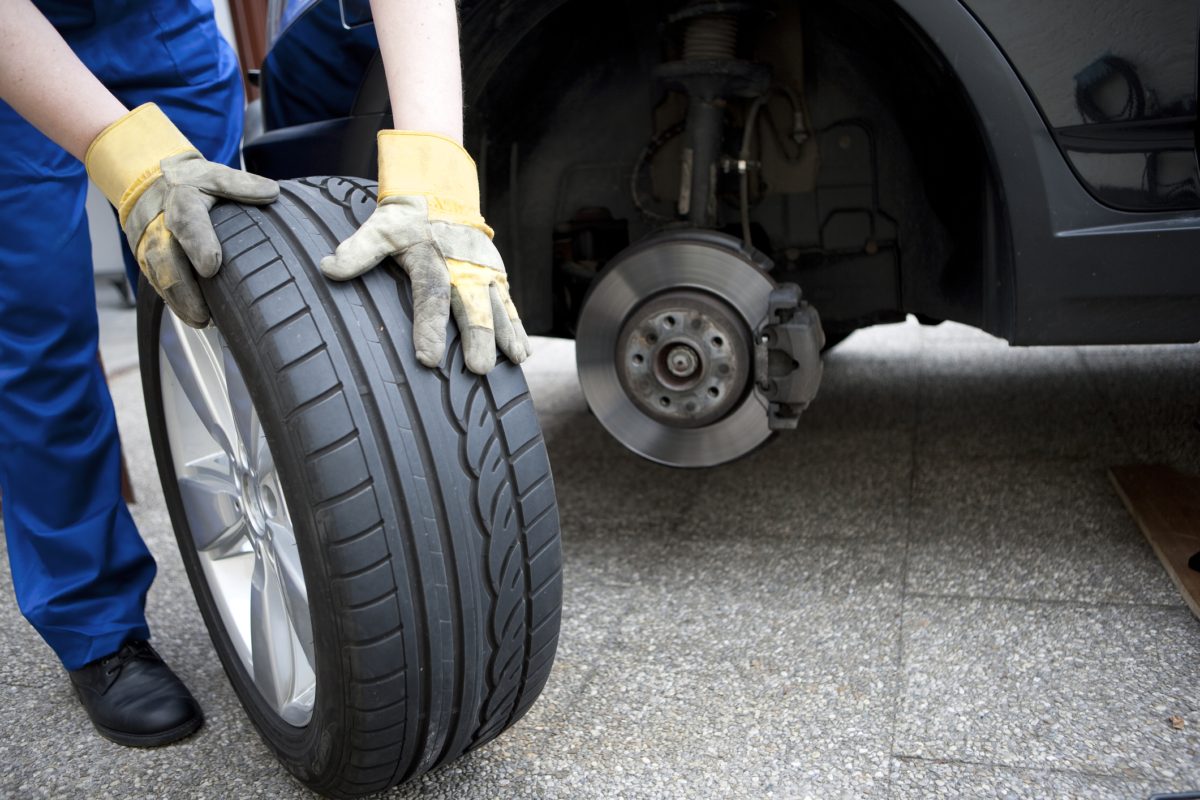
Do new tires make noise? Well, if you are experiencing humming or squealing noise apart from the engine’s sound, chances are that the noise is coming from your new tires. And that’s one way your vehicle is trying to communicate with you. But worry not— as there is nothing to panic about!
New tires sometimes get noisy due to hard tread wear, damaged rubber material or simply because they are new and need some time to adapt to the road. All you need to do is understand the underlying issue and take quick action to resolve it. Fortunately, this guide will explore all the possible reasons your tires are making loud noise and what you can do about it. So, let’s dive in and learn quick tips to avoid noise from tires while driving.
Yes, new tires can sometimes make noise. The sound can be mild or loud depending on the speed, tire construction, and brand you’re choosing! To fix these noises in the new tires, we must simply understand the science behind this. Let’s break down some parameters that can be responsible for loud tire noise:
One of the key elements that affect the tire noise is the construction of the tire. Not every brand’s tire is made of the same synthetic material, such as the hard rubber, which can produce a humming sound on the road than softer ones.
Tread patterns enhance the grip of the tire on the road. Some brands even have various types of tread patterns that meet the needs and demands of the customer. However, it must be noted that different tread patterns can produce different types of noise while driving.
Now that we have understood the tire’s construction and types of material, let’s uncover the reason why your new tires can make noise on the road. There can be several reasons for this, and finding them can help you minimize them.
Do you know that new tires have a break-in period? In simpler words, brand new tires need some time to adapt to your vehicle or driving pattern. Most often the rubber of the tire is hard and requires a few miles of drive before it gets softened to ensure maximum performance. During this time span, the tires are more prone to making noise and aggressive sounds on the road. Thus, it is recommended to always follow the care guide during the break-in period after getting new tires.
Another possible reason why the new tires are making so much noise is that the tread patterns are quite aggressive at the start. Yes! Having aggressively intact tread patterns on new tires can also produce a loud sound. when driving on the roads. However, every tire brand launches their tires in different tread patterns that affect the grip as well as noise level. You can choose one that fits your preference.
The first type includes the tire with symmetrical tread patterns. These tires are considered to make the least noise as the contact point with the road is larger.
Another type is asymmetric, where the tread patterns have different designs. These tires produce loud sounds as every part of the tire touches the road in a certain way.
These are considered the loudest tires on the road but with the highest grip.
Finally, another factor that comes into play is rubber composition. Tires are made up of different types of synthetic materials alongside rubber, which make them hard and soft. You must be thinking about whether a tire with soft or hard rubber differs in terms of noise level, and then the answer is Yes!
Tires with a soft rubber composition tend to make less noise than those with a hard rubber composition. However, you might need to compromise the durability as hard rubber is expected to last longer on rough roads.
Wondering how to get rid of irritating noise from tires, ruining your overall travel experience. It is impossible to stop the tire noise completely. However, there are several ways you can reduce it effectively. Let’s find out the tips and tricks on how to avoid or minimize the new tire noise:
Driving at a faster pace, especially with new tires, can produce noise. Make sure to drive slowly and carefully during the first few hundred miles to let the tires adapt to your vehicle.
When the tread pattern is the reason why your tire is making a noise on the road, you can manage it with proper air pressure. Try keeping them inflated at the right pressure at all times. An under-inflated tire will produce extra noise as the area of contact between the tire and the road becomes larger.
Tire rotation is a real thing! It is suggested that the tires be rotated (from the front toward backward in an X pattern) every 5000-6000 miles. Rotating the tires this way can reduce uneven wear and tear and ensure that the tires produce less noise.
Are you tired of distracting noises from tires while driving? Your new tires are the culprit. Above, we have discussed why and how new tires tend to make loud noises on the road. Good thing is that there are a number of ways to minimize this noise. Whether you bought the most aggressive tread pattern tires or are driving in a break-in period, you can try one of the tricks mentioned above to reduce the disturbing tire noises.